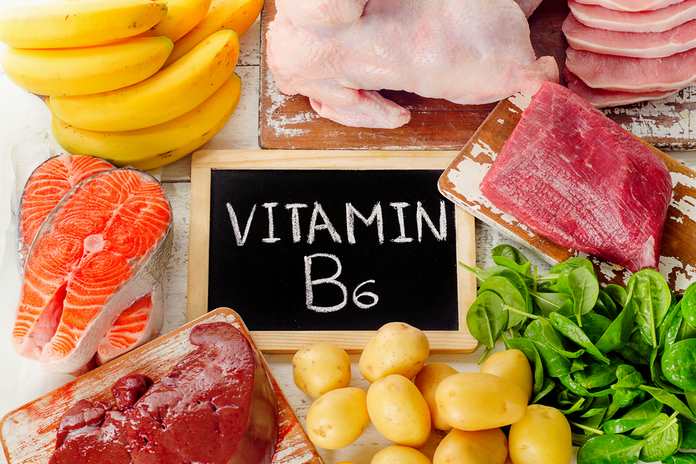Vitamin B6
Vitamin B6 is a group of nutrients needed for the synthesis of a coenzyme known as pyridoxal phosphate. This coenzyme is involved in more than 100 different metabolic processes in the body. All the dietary forms of vitamin B6 are converted into pyridoxal 5-phosphate in the liver. Keep in mind that pyridoxal 5-phosphate is the active form of the vitamin.
Like all other B vitamins, vitamin B6 also acts as a coenzyme in several chemical reactions. Moreover, it is also involved in red blood cell formation. Vitamin B6 is also essential for amino acid metabolism, and it is also needed for the release of glucose from glycogen.
Furthermore, Vitamin B6 supports the formation of white blood cells. It also helps the body to synthesize several neurotransmitters.
Some of the right sources of vitamin B6 are tuna, turkey, pork, chickpeas, bananas, and potatoes. Along with this, vitamin B6 is also frequently added to breakfast cereals and soy-based meat substitutes. However, the availability of vitamin B6 is higher in animal-sourced foods, compared to plant foods.
Keep in consideration that vitamin B6 deficiency is rare, but people with alcoholism are at the most considerable risk. Some of the main symptoms are anaemia, convulsions, skin rashes, confusion, and depression. Moreover, a deficiency is also associated with an increased risk of cancer.

